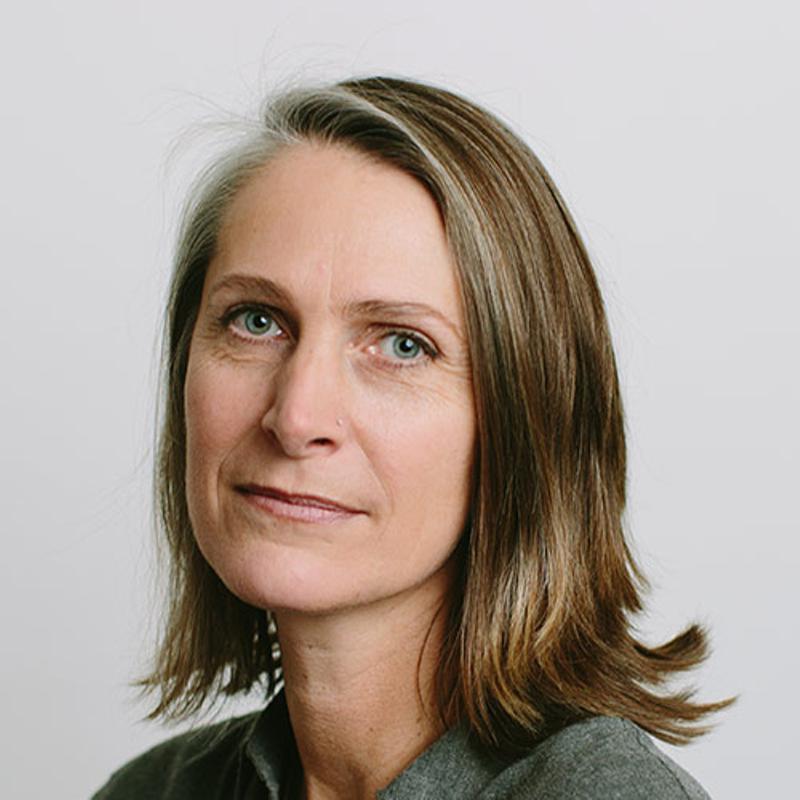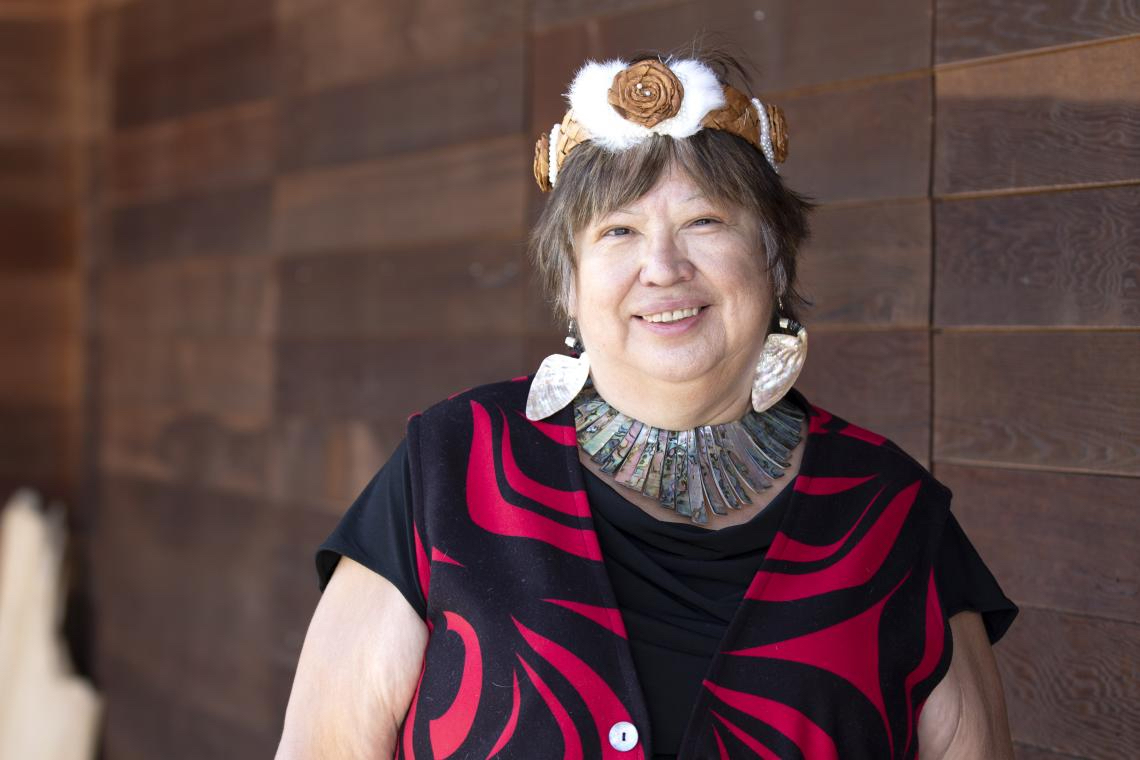The BC First Nations Justice Council says it has already begun strategizing ways it could implement changes in how abuse investigations are conducted in Indigenous communities, something requested as a remedy by members of the Lake Babine Nation in an ongoing human rights tribunal inquiry.
The complainants say the RCMP discriminated against them and failed to make accommodations for First Nations’ distrust of RCMP when police conducted an 18-month investigation a decade ago into allegations of physical, sexual and emotional abuse at northern B.C. schools dating back to the late 1960s and early 1970s.
Six members of Lake Babine Nation filed a complaint with the Canadian Human Rights Commission in 2017. The commission investigated and referred the complaint for tribunal inquiry in 2020. After a series of delays, hearings began in Burns Lake in May and continued online through June. They were initially scheduled to last six weeks.
But additional hearing dates were added throughout the fall, and have been tentatively set into the new year, to hear evidence specific to the remedy that BC RCMP divest itself of abuse investigations in Indigenous communities. The complainants are asking that police investigators be replaced with independent investigation teams that would include a local language speaker, an Elder and a spiritual leader, among others. The teams would also include one police officer.
A decision, which could include an order to implement remedies requested by the complainants if the tribunal determines discrimination by the RCMP, is not expected for several months after the hearings wrap up.
Last Friday, the tribunal heard that lawyers with the BC First Nations Justice Council began looking into the development of an alternative investigative team in the summer. Three lawyers who testified on behalf of the justice council said it is uniquely positioned to spearhead and oversee the implementation of the remedy.
It’s something that aligns with the justice council’s mandate and work already underway between the organization and the province to bring the justice system in line with B.C.’s Declaration on the Rights of Indigenous Peoples Act, justice council director Judith Sayers, who is also president of the Nuu-chah-nulth Tribal Council, told the tribunal.
“First Nations in British Columbia are working towards self-determination, and this includes justice,” Sayers testified. “In the long run, that’s where we’d love to go is complete independence in justice.”
Sayers testified alongside two other lawyers, Jonathan Rudin and Rachel Barsky, who laid out research they’d done over the past several months into implementing the remedy sought by the complainants. Both determined that a hybrid model, in which independent investigation teams would include one police officer, could provide an initial path forward with the eventual goal being complete Indigenous justice sovereignty.
“We talk about indigenizing a system but it’s really hard to indigenize a system that wasn’t ours to begin with,” Sayers said.
An optional route for First Nations, tailored to communities
Earlier this month, Mitchell Taylor, a lawyer with Canada’s Department of Justice, which is representing the RCMP at the hearings, described the complainants’ request as “far-reaching” and said it had the potential to affect people who had never agreed to it.
“You would have six complainants imposing their will and that remedy, if it were so ordered, on a vast population,” he said.
But that wouldn’t be the case, the tribunal heard Friday.
Sayers said the independent investigative teams would provide an optional route for First Nations making abuse complaints and would be tailored to the unique culture, history and protocols of each Indigenous community. Routine policing would still be done by police agencies, she added.
Having a police officer on the teams would help navigate logistical hurdles, Rudin testified, such as obtaining warrants and forwarding charge assessments to Crown counsel. B.C. is one of the few provinces in Canada where the ultimate decision about whether to proceed with charges is made by prosecutors rather than police, he said.
Rudin, a consultant hired by the BC First Nations Justice Council for the purpose of researching ways to implement the remedy, used the Independent Investigations Office of BC, a civilian-led police oversight agency that was given powers to recommend charges through an amendment to the Police Act, as an example of what the investigative teams could look like. But he also noted jurisdictional challenges, with the federal Canadian Human Rights Tribunal unable to pass legislation in B.C.
Sayers said the justice council would be responsible for choosing the police officers assigned to each team. They would need to understand the impacts of residential schools, have cross-cultural training and take a trauma-informed approach, she said.
“We just want people on the team that understand where this person is in their life or what has impacted them,” she said. “There are some pretty good RCMP officers out there. It’s finding the right ones that we can trust to sit in the circle and be part of the group. The group will make a decision whether the charges should go forward.”
How the remedy pertains to the investigation under review
In the case that sparked the current RCMP investigation now under review, a woman from the Lake Babine Nation took her allegations of childhood abuse at Immaculata Elementary School in Burns Lake to the local RCMP detachment in 2012. She said she left the detachment feeling disbelieved and retraumatized.
More than a dozen witnesses from the Lake Babine, Wet’suwet’en and Ts’il Kaz Koh First Nations, who testified earlier in the hearings, told the tribunal stories of abuse at the Burns Lake school and at Prince George College. They shared stories of being taken to residential and day schools against their will by RCMP and government agents and expressed deep distrust of police.
The tribunal also heard from the RCMP’s lead investigator in the case and saw internal RCMP briefing notes describing the alleged abuser as a “well-known Canadian” who had “risen to prominence [and] remained prominent.” The man’s identity is protected by a confidentiality order issued by the tribunal last year.
Days after the RCMP investigation was launched, the briefing notes were circulated among RCMP brass, including then-commissioner Bob Paulson. According to one internal email, the memo was also shared with the alleged abuser’s legal team, which kept in close contact with the RCMP’s lead investigator throughout the investigation.
The RCMP ultimately determined that there was insufficient corroborating evidence to recommend charges. The tribunal heard that some potential witnesses were dismissed by investigating officers because they experienced the alleged abuse at Prince George College and not in Burns Lake. Some First Nations witnesses testified that they declined to speak with police because of mistrust.
“How do we make it easier for survivors to come forward? Because it’s a tough process. People I know won’t do it. If we had a different system in place, would they come forward? I think so,” Sayers told the tribunal on Friday. “I think this option is a really good one.”
Rudin said implementing the remedy is “the best chance of getting people to come forward” given First Nations disillusionment with the criminal justice system.
“There were hardly any charges laid against anybody during the residential school period for abuses that happened,” he said. “To ask them to go into a police station and speak to a police officer, why would people do that? If you have a system where there’s an Indigenous investigatory body, people will feel more willing to go there.”
Rudin noted that two RCMP commissioners have apologized to the Indigenous community, Giuliano Zaccardelli in 2004 and Bob Paulson in 2014, for the force’s failure to investigate residential school crimes. More recently, the National Inquiry into Missing and Murdered Indigenous Women and Girls came to similar conclusions about the force’s failures in this area, he said.
The failings aren’t restricted to the RCMP, Rudin added, pointing to former justice Wally Oppal’s report on the disappearances of women from Vancouver’s Downtown Eastside, which implicated the Vancouver Police Department alongside the RCMP.
Rachel Barsky, a policy lawyer with the BC First Nations Justice Council, also laid out preliminary work underway by the council to implement independent abuse investigation teams in Indigenous communities. She added that none of the suggested models are “carved in stone.”
Barsky agreed that a hybrid model makes the most sense and determined it is necessary to involve the RCMP in the investigations but also important that the teams be “Indigenous driven,” with the justice council selecting the police officers and ensuring all team members, including police, undergo a cultural training course developed by the council.
Barsky suggested the teams could include a support worker or “Auntie” to provide trauma-informed, culturally grounded support during interviews, as well as a liaison from the local First Nation, such as an Elder, to connect the team with the community. If the investigation did not go ahead, the person making the complaint could still be offered ongoing support, she said.
The BC First Nations Justice Council was created in 2016 and combines representation from the BC Assembly of First Nations, First Nations Summit and Union of BC Indian Chiefs. Through the BCFNJC Justice Strategy, which came into effect several years ago, the justice council works with the province to address poor justice system outcomes for First Nations in the province, by reforming the existing system and rebuilding Indigenous justice systems, the tribunal heard on Friday.
Earlier this year, B.C. also announced the Indigenous Justice Secretariat, which it describes as “a key part of the province’s commitments to advancing reconciliation under [DRIPA and] supporting Indigenous-led restoration of traditional justice systems and culturally relevant institutions.”
The BC First Nations Justice Council is in the process of opening 15 Indigenous justice centres across the province, which are intended to provide a culturally safe space for First Nations accessing the justice system and could provide a physical space for implementing the requested remedy, witnesses said.
Next steps in the tribunal hearing
RCMP lawyers are scheduled to begin cross-examining BC First Nations Justice Council witnesses on Dec. 18, a process that could take several days, the tribunal heard. The RCMP will call its own witnesses to speak about the proposed remedy following its cross-examination, likely taking the hearings into the new year. Tribunal chair Colleen Harrington said dates have been set aside in January and the first week of February, if needed.
As testimony wrapped up last Friday, the complainants’ lawyer, Karen Bellehumeur, stressed the importance of wrapping up testimony in December, saying delays are “causing harm” to witnesses and complainants. In the years leading up to the current hearings, three of the six complainants and one witness have died.
B.C.’s attorney general will also have the opportunity to cross-examine witnesses after being granted limited interested person status in the inquiry on Nov. 15. The province is currently limited to cross-examining witnesses and providing written submissions.
But that could change, Graham Rudyk, a lawyer for the attorney general, indicated.
Rudyk said that B.C. intends to bring forward an application for leave to call witnesses on behalf of the province by Dec. 22. If granted, it will mean the attorney general could call additional witnesses after RCMP evidence is presented, with potential to further extend the hearings. ![]()
Read more: Indigenous, Rights + Justice


















Tyee Commenting Guidelines
Comments that violate guidelines risk being deleted, and violations may result in a temporary or permanent user ban. Maintain the spirit of good conversation to stay in the discussion and be patient with moderators. Comments are reviewed regularly but not in real time.
Do:
Do not: